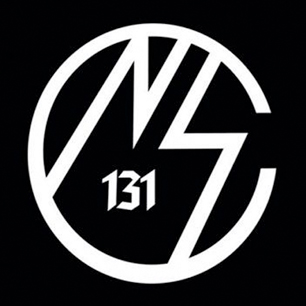Executive Summary
More than 70 years after the defeat of Nazi Germany, ethno-nationalist and white supremacist movements in Europe
continue to thrive. They include far-right political parties, neo-Nazi movements, and apolitical protest groups.
Some groups openly espouse violent white supremacy, while others have propagated their radical stances under the
guise of populism. Such populist groups claim that they are striving to protect average hardworking Europeans by
preserving their livelihoods and heritages from economic and cultural threats posed by immigrants and ethnic
minorities. Though not all of these groups directly link their ideologies to Nazism, their propaganda portrays
immigrants and ethnic minorities in a similar manner to how Nazi propaganda portrayed Jews, blaming them for
national economic troubles and depicting them as a serious threat to the broader national identity.
In a June 2018 speech, German Chancellor Angela Merkel recognized that the majority of refugees are victims, and that
"escape and expulsion are part of our German and European history." Nonetheless, several far-right political parties in Europe
have infused anti-immigrant and particularly anti-Muslim xenophobia into their party platforms through the concept
of ethno-nationalism––the idea that a nation should be composed of a single ethnicity. These parties postulate that
hardworking European natives are suffering economic and cultural losses due to immigrants and ethnic minorities who
want to replace national, religious, and cultural identities with foreign values. Ethno-nationalists also view
multiculturalism as a code word for the destruction of the native national identity. For example, Hungary's
neo-fascist Jobbik political party rejects "the dead-end Western European multiculturalism" and has pledged to
"defend our cultural identity developed over our history." Groups like Germany's Alternative für Deutschland (AfD)
political party lament the influx of Muslim immigrants, which they claim weakens the German culture and quality of
life. AfD has gone so far as to claim that Islam is a danger to Germany.
These far-right political parties have therefore been able to unite ethno-nationalism with populism by propagating
the notion that ethno-nationalism serves the average hardworking individual and the broader national identity. Their
propaganda campaigns have allowed them to generate substantial popular support and make gains in domestic elections.
The AfD came in third in Germany's September 2017 parliamentary elections. In March 2018's Italian parliamentary elections, the
far-right, anti-immigrant Lega Nord ("Northern League") party succeeded in becoming the third largest party in
Italy's parliament. League leader Matteo Salvini served as Italy’s interior minister from June 2018 until August
2019. In that role, he refused a migrant aid ship permission to dock in Italy and called for a national census to
address "the Roma question." The League received only 9 percent of the vote in Italy’s September 2022 parliamentary elections. Leading a political alliance that included the League, the right-wing populist Brothers for Italy (Fratelli d’Italia or FdI) party became the country’s largest political party. These parties also view the European Union as a harmful
foreign influence that has undermined the sovereignty of their respective nations.
Some ethno-nationalist political movements have openly embraced the language and symbolism of the Nazi movement. In
Hungary, Gabor Vona, the former chair of the far-right Jobbik, has blamed international Jewry for attempting to buy
Hungary and interfere in its elections. Jobbik has also used the Nazi "Arrow Cross" to symbolize pride in Hungary's
Nazi past. In 2014, a Hungarian court ruled that Jobbik may be
referred to as "neo-Nazi" in Hungary. Despite similarities in propaganda, however, not all of
Europe's far-right political movements have openly embraced links to the Nazi or neo-Nazi movements. Members of the
French anti-immigrant Les Identitaires movement reject violence and consider themselves to be patriots defending
European identity from cultural corruption imposed by Islamic mores.
Les Identitaires' youth wing, Generation Identity (GI),
has a presence across Europe and uses social media and popular demonstrations to propagate similar anti-Islamic
notions and gain traction with young people.
In July 2020, Twitter suspended several GI-linked accounts during a purge of more than 50 white supremacist accounts. France banned GI in March 2021.
Les Identitaires and GI adhere to the identitarian ideology and its Great Replacement theory, which GI describes as
"the process by which the indigenous European population is replaced by non-European migrants." The conspiracy theory is Great Replacement Theory, which postulates that black and brown immigrants are reverse-colonizing the dominant European—i.e., white Christian—culture in Western countries. While versions of the Great Replacement are not new, French writer Renaud Camus popularized the conspiracy theory in his 2012 book, Le Grand Remplacement (“The Great Replacement”) and ethno-nationalist groups around the world have since embraced the idea.
The Great Replacement has influenced violent attacks such as the May 14, 2022, assault on a Buffalo, New York, supermarket that killed 10. A manifesto attributed to alleged shooter Payton Grendon warned of white genocide from cultural, racial, and ethnic replacement brought on by immigration and high fertility rates among migrants. Employing similar rhetoric, Brenton Tarrant, the white supremacist who killed 51 people at two New Zealand mosques on March 15, 2019, entitled his manifesto "The Great Replacement" and wrote about the "crisis of mass immigration and … assault on the European people that, if not combated, will ultimately result in the complete racial and cultural replacement of the European people." The New Zealand attack was a manifestation of the same Great Replacement conspiracy promoted by GI, and its view of a broader white European ethnic identity prevalent in the Western world that transcends national borders. While groups like GI claim to reject violence, they promote an ideology that has led directly toward it.
Some of Europe's historically non-political, violent far-right groups have not only embraced similar populist
language to the ethno-nationalist political movements, but also continue to espouse openly racist concepts and
employ violence to achieve their visions of an ethnically homogenous state. Combat 18, a violent neo-Nazi skinhead
group founded in the United Kingdom in 1992, currently has a presence in at least 18 countries.
Similar to ISIS in its aim to create a Muslim-only caliphate, the group encourages supporters to carry out lone-wolf
terrorist attacks as part of its greater aim to create white-only countries through violence.
National Action is another group of young far-right
extremists that, in 2016, became the first far-right group to be labeled as a terrorist organization in the United
Kingdom after it praised the murder of a parliamentarian.
The group, whose members believe that "Britain should be
for British people,"
reportedly operates training camps where recruits learn hand-to-hand combat in preparation for "white jihad."
Not only do these violent white supremacist groups
employ similar strategies to some of the most prominent Islamic terror groups, but they are also motivated to pursue
the radical end goal of an ethnically or culturally homogenous state due to similar concerns that their identity and
way of life are under threat.
In addition to homegrown ethno-nationalist movements, Europe has also seen a rise of far-right networks affiliated with U.S. neo-Nazi groups. For example, U.S.-based Atomwaffen Division (AWD), now known as National Socialist Order, has established a network in Germany. Additionally, the Feuerkrieg Division was created as a European, neo-Nazi offshoot of AWD. The U.S.-based Nationalist Social Club (NSC) has also been active in Germany, Hungary, and Bulgaria. Modern communication methods make it easy for these groups to expand their reach across international borders. Further, groups such as NSC have no formal hierarchy and allow chapters latitude to interpret their own guidelines around the core principle of white supremacy. This independence has made it easier for these groups to expand their membership without a need for official oversight or investment of resources.
The Counter Extremism Project (CEP)'s European Ethno-Nationalist and White Supremacy Groups report outlines the
history, propaganda, violent activities, and notable rhetoric of some of the continent's most active
ethno-nationalist and white supremacist groups.
Download Full Report
Key Points
European far-right ethno-nationalist groups have cast immigrants as a scapegoat for economic hardship faced by young Europeans. Rather than promote overt white supremacy, these groups denigrate minorities—particularly Muslim immigrants—as detrimental to European culture.
Far-right political parties like Germany's Alternative für Deutschland and Italy's Lega Nord have been able to generate substantial popular support by promising to defend their respective countries against the cultural attacks of immigrants and foreign influences, and have consequently made gains in domestic parliamentary elections.
Groups like Les Identitaires and its youth wing, Generation Identity, have renounced violence in favor of utilizing social media and public demonstrations to portray themselves as legitimate, mainstream movements protecting European culture. These groups have directly targeted Europe's youth through social media and public demonstrations.
Groups including Combat 18 and the Nordic Resistance Movement, which openly embrace neo-Nazi ideology and violent tactics, are still able to recruit for violent activities, despite the rise of non-violent, populist groups.
Some U.S. neo-Nazi groups have created a European presence. Atomwaffen Division and other U.S.-based groups have inspired European offshoots such as the Feuerkrieg Division. The Nationalist Social Club has established a following in countries such as Germany and Bulgaria.


















